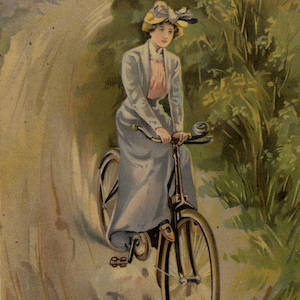Early Modern (1450 CE - 1800 CE)
Laws and Regulations Respecting Slaves at the Colony the Cape of Good Hope
Although marriage was not forbidden between Europeans and slaves or other non-Europeans, it was quite rare and entailed a drop in social status for the European. Nevertheless, sexual relationships occurred—sometimes coerced, sometimes by mutual agreement.
Slave Women and Children
Although marriage was not forbidden between Europeans and slaves or other non-Europeans, it was quite rare and entailed a drop in social status for the European. Nevertheless, sexual relationships occurred—sometimes coerced, sometimes by mutual agreement.

Emory Women Writers Resource Project
The subjects covered are diverse and include commentaries on such topics as nature, native-white relations, emancipation, imperialism, social and sexual mores, wet nursing, Christianity, and women’s suffrage.The Story of the Stone
Many adult voices advocated the need for a good moral upbringing as part of a rigorous education for children during the later Ming and Qing dynasties, an aspect seen in the primers that were repeatedly published during this period.
Bhakti Poets: Poem, Bahinabai
Bhakti poets—who were in some cases lower-caste Hindu women—and their audiences drew emotional sustenance from these verses, which expressed a pure devotion to Hindu deities.
Dona Marina, Cortes’ Translator: Poem, La Malinche
A well-known Chicana poem about Malinche. Tafolla took inspiration from the famous 1967 poem of the Chicano movement, “Yo Soy Joaquín,” but rewrites from an explicitly feminist perspective.
Dona Marina, Cortes’ Translator: Poem, Como Duele, 1993, Women in World History
One of the earliest meditations on Malinche and her meaning published by a Chicana in the United States. This narrative explores Malinche’s fate and her abilities to negotiate difficult and competing cultural demands.
Imperialism in North Africa: Interview, Djamila Bouhired
By the eve of the revolution, Algerian demands for even limited political and civil rights had been repeatedly rebuffed by the French colonial regime and the nearly one million European settlers in the country.

New York Public Library Digital Collections
The NYPL Digital Collection provides access to over 755,000 images digitized from primary sources and printed rarities, including illuminated manuscripts, vintage posters, illustrated books, and printed ephemera.Royalists Desecrate the Revolutionary Cockade (3 October 1789)
Military officers in several regiments of the royal army favored a military strike to dispel the National Assembly, but by the fall of 1789 they saw clearly that this order would not be given.